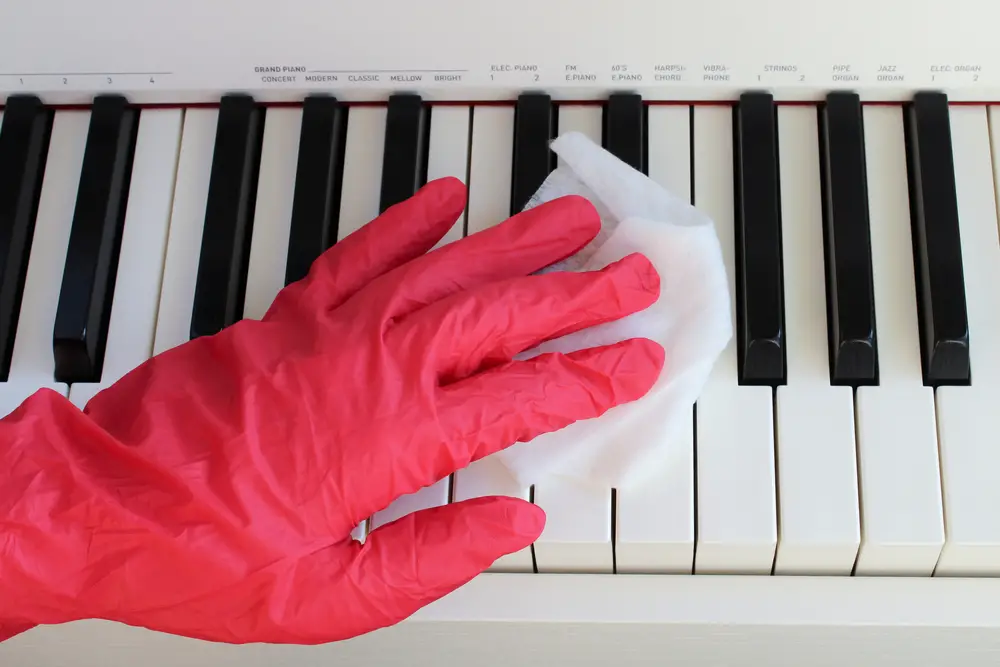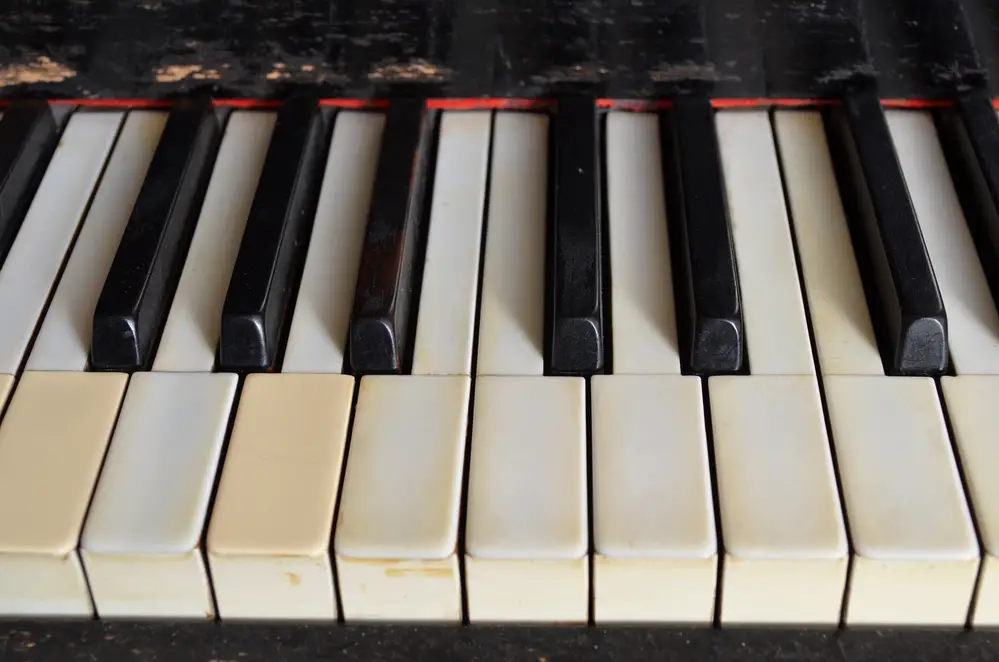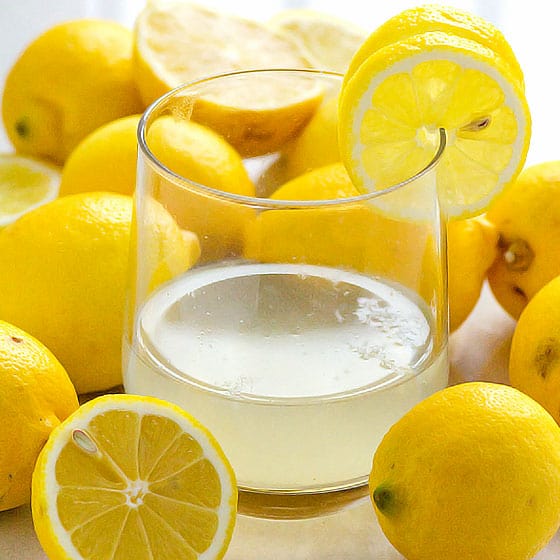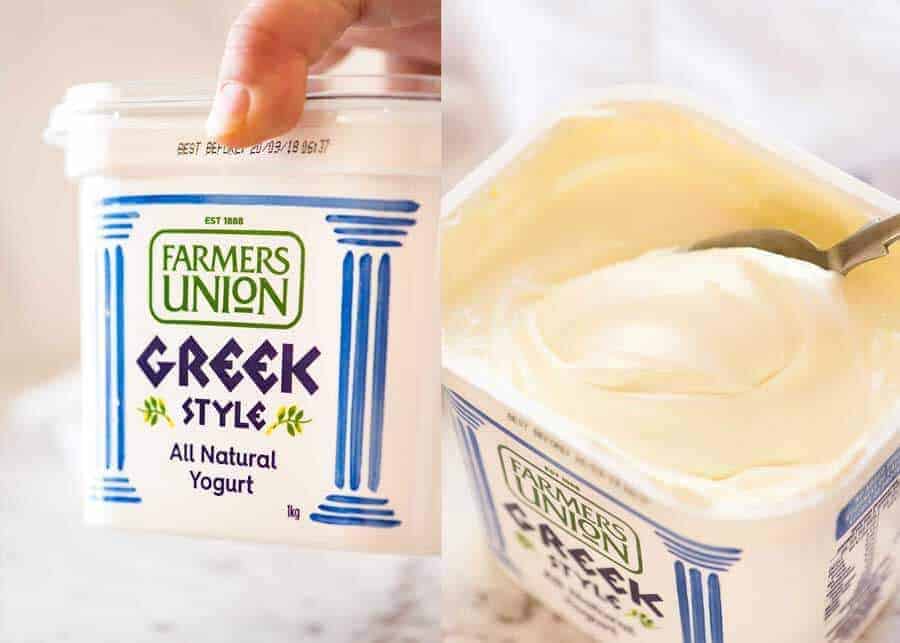
Everyone loves a clean piano.
A well-kept piano can brighten up a room and add a nice visual appeal. It can also bring endless entertainment for everyone who enjoys music (and maybe even motivate a beginner to learn faster!)
But, one day, you will realize something. The keys are dirty. They’ve become a little yellow or sticky. What should you do?
It’s time to clean those keys and make them shine once again. But how? In this article, I’ll show you how to clean your keys properly without damaging them.
Quick NavigationCleaning Piano KeysIvory vs Plastic KeysGeneral Cleaning TipsHow To Clean Plastic KeysHow To Clean Ivory KeysCleaning Digital Piano KeysAlternative Cleaning MethodsHand-Soap MethodLemon JuiceToothpasteDiluted VinegarYogurt and MayoIvory ScraperHow Often Should You Clean the Keys?How to Clean Your Piano KeysConclusion
Cleaning Piano Keys

Dust, skin oil, and dirt can build up on the keys over time. If you want to have a pleasant instrument to play, it’s essential to regularly clean the keys.
Ivory vs Plastic Keys
Since some pianos have ivory keys and others have plastic ones, there are different cleaning techniques. If you don’t already know which material your keys are made from, you should figure that out first. You need to be aware of both key types.
Ivory keys are rarer than plastic ones. Ivory keys were discontinued in the 1970s and finally outlawed in 1989. One of the easiest ways to distinguish ivory keys is the slight yellow hue. Usually, they aren’t perfectly white and take on this yellowish color over time. These keys are also two conjoined parts, unlike plastic keys. As you play them, you feel a slight grainy texture on your fingertips. Plastic keys feel smoother and are whiter.
General Cleaning Tips
It’s always best to clean one octave at a time. Clean all of the notes and dry them off before continuing. By doing this, you avoid getting into a habit of cleaning and drying one note at a time. On the other hand, there isn’t anything wrong with cleaning individual notes. Some people might even recommend it.
Don’t use a paper towel to wipe the keys down. Use a lint-free cloth that won’t leave any residue.
Avoid using cleaners with lots of chemicals. Those chemicals can permanently damage the keys, regardless of material.
Use more than one cloth. Many people find it beneficial to use a separate cloth for the white and black keys. You’ll need several of them, especially if your keys are really dirty.
How To Clean Plastic Keys

These are the steps to clean plastic keys:
- 1Fill a small bowl with warm water (dish soap optional)
- 2Acquire a soft white cloth
- 3Lightly dip cloth into water
- 4Clean keys with a brushing motion (not too hard)
- 5Use a different cloth for the black keys
- 6Wipe them off after finishing an octave
- 7Cover the keys when you’re done
Avoid using a side-to-side brushing motion, as it can transfer dirt in between keys. As you push down, there’s an opening at the back of the keys. Don’t brush the cloth in a way that will push dirt behind them. Take your time to clean each key off as well as possible.
How To Clean Ivory Keys

Now that you know how to clean plastic keys, it’s time to move on to ivory. Since ivory keys are a bit more fragile, you should be extra careful. On top of fragility, it’s likely that your piano is relatively old. Getting an old, ivory-keyed piano can be an expensive ordeal. If it’s an antique, it’s best to call a professional piano technician. Here are the steps to clean ivory keys:
- 1Don’t use soap or chemicals
- 2Wear cotton gloves
- 3Use a duster or paint brush to remove key dust
- 4Rub the keys with a white vinyl eraser
- 5Wipe off all the eraser bits
- 6Use a fine steel wool pad to remove the yellow hue
- 7Let sunlight hit the keys
Make sure to use a very fine steel wool pad. If it isn’t fine enough, you could scratch the keys. There’s a reason for exposing the keys to sunlight. Sunlight naturally whitens and bleaches ivory. If you have a keyboard, it’s easy to move it near a window. However, if you have a grand or upright piano, it’s not as easy. If you’re careful, you can remove the action (all the keys) at the same time. It might surprise you at how easy it is to remove all the keys.
Cleaning Digital Piano Keys

Cleaning keyboard keys is very simple. All that’s needed to clean the keys is dish soap and water. You can also use furniture cleaning equipment. To start out:
- Dip a damp white cloth in your soap-water cleaning mix.
- Wipe and dry each of the white keys individually for the best results.
- After you clean the white keys, move on to the black ones.
- Lightly dampen another cloth into the solution.
- Gently rub the top of the keys one-by-one.
- It’s also excellent to clean the sides of them. Dry each key off and repeat the process.
Alternative Cleaning Methods
Hand-Soap Method
This method is for plastic keys. To do it, fill a spray bottle with two tablespoons of hand soap and water. Shake the bottle to create an even mix. Get a small cloth or an old cotton t-shirt to wipe the keys. Instead of spraying the solution directly on the keys, spray it on the cloth. Spraying it on the keys can be harmful and get moisture between the keys.

Lemon Juice
Using lemon juice on ivory keys is another whitening technique. If you give this a try, make sure you don’t leave the juice on the keys too long. Citric acids can erode the material. Spray a cloth with lemon juice and gently scrub each key one by one. It’s best if you dry off the keys before moving on to the next one.

Toothpaste
Another home remedy for stained ivory keys is toothpaste. However, you can’t just use any toothpaste. It has to be a clear white brand with no other colors. For this technique, you’ll also need to dampen a cloth with whole milk. After putting the toothpaste on the keys, wipe it off with the milk, and dry the keys immediately afterward.

Diluted Vinegar
Diluted vinegar tends to be a fast-working solution for ivory keys. Dust the keys and then clean them with vinegar. Create a mix of 4 parts water and 1 part vinegar for the best results. Apply just a small amount of vinegar to avoid corroding the ivory. To scrub the keys, use a cheesecloth, flannel, or a t-shirt. Avoid using steel wool on ivory, as it will scratch up the keys.

Yogurt and Mayo
Another bizarre way to clean your keys is with yogurt or Mayo. The bacteria in both of them are acidic and can help whiten the keys. If you’re scared of corroding the keys, this method is safer than the rest. Apply one of the substances on the keys and let it sit for a few minutes.

Ivory Scraper
Be extra careful if you decide to use an ivory scraper. If the stains are heavy, you might need to scrape them off. As you’re scraping, you’ll see many of the stains come off instantly. Since it’s dangerous to misuse a scraper, you might want to have a piano technician teach you how to do it first.

Though it costs extra money, it could prevent potential damage to your keys. On the other hand, if you’re careful and use a light stroke, the keys should be fine. For heavily stained keys, you can use the ivory scraper and then a juice solution.
How Often Should You Clean the Keys?
If you have the time, you can carefully clean the keys every week. This frequency will ensure that your piano is in the best shape possible. Even if you don’t do it weekly, it can be beneficial to create a cleaning schedule. With this, you won’t have to worry about having stained keys again.
How to Clean Your Piano Keys
Conclusion
Pianos can last for decades, so it’s important to clean the keys regularly. Before starting out, it’s essential to figure out what type of keys your piano has. Plastic keys have relatively straightforward cleaning methods, while ivory keys can be cleaned using many techniques. If you can’t figure out what type of keys you have, you can find your piano model’s online description. However, if you have a newer piano, your keys are almost 100% likely to be plastic.
There’s always the option to hire a piano technician to clean the keys for the first time. Doing this can be useful if you have little free time or you’re worried about damaging keys. Regardless of which route you choose, you’ll be much happier with clean keys.
